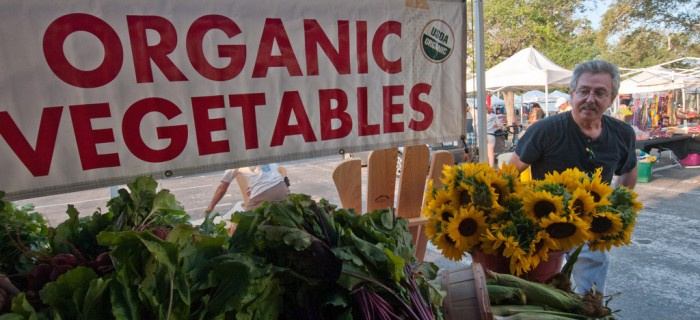Farm Bill Fiasco: What next for the food movement?
Food First Backgrounder, Spring 2013, Vol. 19, No. 1
Deciding how America will nourish itself and sustain its farms would seem a top policy priority— yet as the US Farm Bill demonstrates, sustainably grown, healthy food and livable incomes for farmers and workers remain an afterthought in a process controlled almost entirely by agribusiness and a handful of farm-state legislators. Despite strong public opinion supporting local food, farmer’s markets, organic agriculture, food workers’ rights and access to fresh produce, agribusiness and commodity interests continue to dominate food and farming policy.
That’s largely due to their prodigious lobbying clout: agribusiness spent $137 million last year muscling Congress to do its bidding and another $46.6 million on federal candidates (about 60 percent Republican) in 2010. This phalanx of power includes commodity producer groups like the American Corn Growers Association; corporate food processors and purveyors such as Kraft and Dean Foods; the Farm Bureau; dairy and meat industry giants; and seed and petrochemical corporations like Monsanto.
With such high stakes, the Farm Bill is difficult to ignore, even as it is controlled by corporate interests and seemingly impermeable to reform. If there is any hope, it lies in the growing US food movement.
On the other side, armed with ideas and passion but little money, stand hundreds of groups from across the US pressing Congress on an array of policies—including commodity subsidy reform, fair prices for farmers, public monies for local foods and small farmers, and conservation and nutrition funding. With a handful of lobbyists and diverse interests, they fight doggedly for small wedges of the Farm Bill pie. But is the Farm Bill a productive venue for food movements to make meaningful change in food and farming policy?
Reforms Thrown Off the Cliff
In the 2012-2013 version, after months of work by dozens of advocacy groups, a promising Farm Bill sponsored by Michigan Senator and agriculture committee chair Debbie Stabenow —protecting nutrition and conservation while reforming subsidy inequities and supporting local food—was hijacked in a New Year’s Eve “fiscal cliff” budget deal struck by Senator Mitch McConnell and Vice President Joe Biden.
According to the National Sustainable Agriculture Coalition, the McConnell-Biden deal “disposed of programs for new farmers, minority farmers, healthy food markets, rural job programs, renewable energy, specialty crop and organic research and organic farming, and protected every last red cent of direct commodity subsidies.” The deal was “a complete blow to local food and farming,” slicing out $80 million in funding for those priorities, adds Kari Hamerschlag of the Environmental Working Group.
Stay in the loop with Food First!
Get our independent analysis, research, and other publications you care about to your inbox for free!
Sign up today!The fiscal cliff and Farm Bill extensions—now being challenged by new measures in Congress—maintained a disastrous status quo:
- Deeply inequitable subsidies and crop insurance payments skewed to the wealthiest farms, primarily for monocrop production of commodities (e.g. corn and soy) for food additives, livestock feed and fuel
- No livable wage guarantees for farmers and workers who still toil within a corporate-controlled “cheap food” economy that systematically exploits them
- Chemical-intensive farming identified by the EPA as a top polluter of over half of the country’s rivers and streams
- Meager public investment in fruits, vegetables and organic farming despite evidence showing they are far healthier for us and for the planet than subsidized commodity crops
- Despite evidence of industrial agriculture’s contributions to global climate change, government policies still promote chemically intensive farming and emergency payments for drought and crop disasters, rather than investing in sustainable farming to address the root of the problem
- Ignoring the blatant connections between commodity subsidies, junk food and obesity, the Farm Bill continues to incentivize mass production of commodities like corn and soy as “inputs” to sodas, fast food and industrially produced meat.
While imposing austerity to avoid the fiscal cliff—and pandering to the agribusiness lobby—the bill sends our food system careening towards a very different cliff: social, economic and environmental catastrophe.


 Help Food First to continue growing an informed, transformative, and flourishing food movement.
Help Food First to continue growing an informed, transformative, and flourishing food movement.




